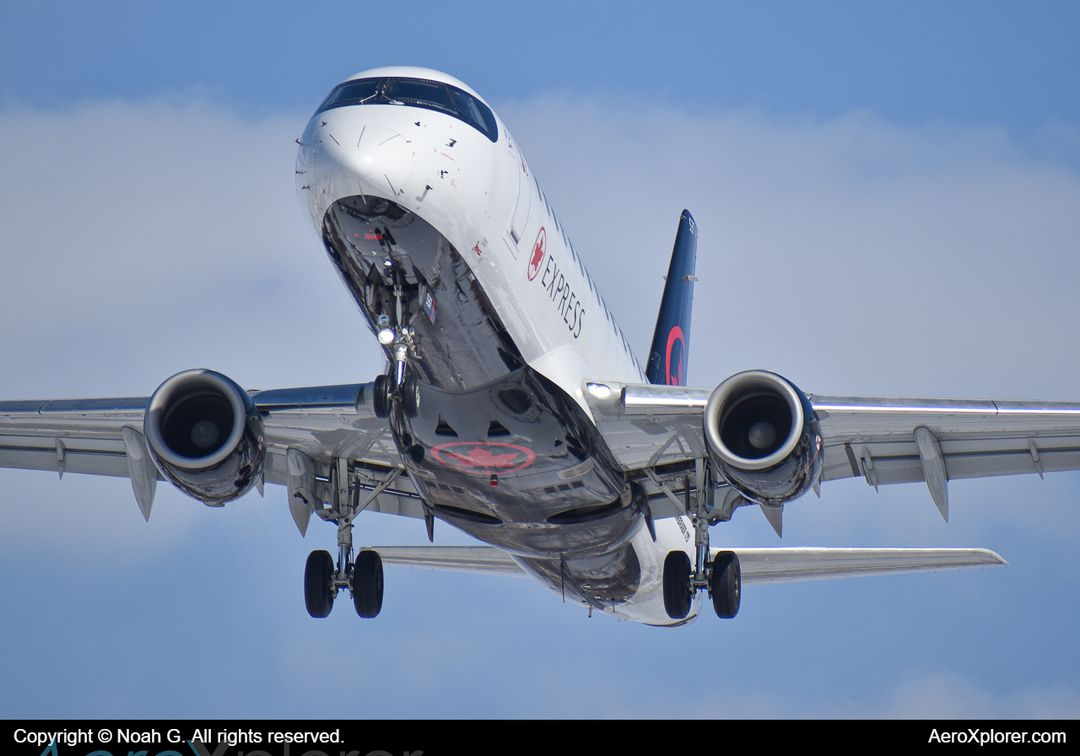
Air Canada (AC.TO) is on the verge of a significant operational shutdown as the airline struggles to reach an agreement with its pilots over wage increases. The airline's pilots, represented by the Air Line Pilots Association (ALPA, are demanding salary hikes to bring them in line with their U.S. counterparts, who benefited from a surge in wages in 2023 during a global pilot shortage.
The outcome of these negotiations could have major implications for the airline and its passengers.
Wage Disparity
The key issue driving the standoff is the disparity between the wages of Air Canada pilots and those working for U.S. carriers, particularly Delta Air Lines (DL). Pilots at Delta received significant wage increases last year, with some earning up to 45% more than their Canadian counterparts.
ALPA is advocating for similar increases for Air Canada’s pilots, citing the high demand for pilots and the heavy workloads resulting from post-pandemic travel surges. Air Canada, however, is pushing back. CEO Michael Rousseau stated that while the company is open to negotiation, the wage demands from ALPA far exceed normal wage growth trends in Canada.
He argues that the U.S. airline market operates under different conditions, with unique challenges such as stricter barriers to pilot entry, making it difficult to draw direct comparisons between Canadian and U.S. pay scales.
A Looming Shutdown

If an agreement is not reached, Air Canada may be forced to suspend most of its operations as early as Sunday. A shutdown of this scale would cause widespread disruption, affecting thousands of travelers both domestically and internationally.
The current dispute is taking place during a three-week cooling-off period that began on August 27, temporarily preventing pilots from striking. However, if no compromise is found before the cooling-off period ends, the likelihood of a shutdown becomes more imminent. Air Canada has warned that, in the event of a suspension, it could take seven to 10 days to fully restore its operations.
Preparing for Passenger Disruption
In anticipation of a potential shutdown, Air Canada is coordinating with other airlines to assist stranded passengers. Flights under the Air Canada Express brand, which are operated by third-party carriers, will continue as planned. This ensures some level of service, but the majority of Air Canada's daily operations would come to a halt.
The airline is facing intense pressure to resolve the situation quickly, as any prolonged shutdown would damage its reputation, particularly in light of the airline industry's slow recovery following the pandemic.
The Negotiation
The wage dispute between Air Canada and its pilots reflects broader tensions within the global aviation industry, as airlines grapple with the challenges of increased demand and labor shortages. Pilots have gained leverage due to the shortage of qualified personnel, with unions pushing for more competitive pay packages.

While Air Canada pilots look to the U.S. for wage parity, industry experts note that the conditions between the two markets differ significantly. U.S. airlines face more restrictive entry requirements for pilots and higher operating costs, creating a situation where U.S. carriers have been willing to raise wages significantly.
As negotiations continue, both sides appear deeply divided. ALPA has yet to publicly respond to Air Canada’s latest position, and industry observers are watching closely to see if a resolution can be reached before operations are disrupted.
But as the cooling-off period draws to a close, the outcome of these talks will have lasting repercussions for the airline, its employees, and the wider aviation industry. If a deal is not reached soon, Air Canada could face a difficult path toward restoring normal operations in the days ahead.
Flydubai, Turkish, and Pegasus Suspend Flights Amid Escalating Unrest and Digital Blackout » EVA Air to Launch Nonstop Flights to Washington-Dulles » NTSB Scrutinizes FAA NOTAM Logic Following Fatal MD 530F Canyon Crash »
Comments (0)
Add Your Comment
SHARE
TAGS
NEWS Air CanadaAir CandaAir CanadaOperationsPilot Wages Air Line Pilots AssociationDelta Air LinesRECENTLY PUBLISHED
 SAS Hosts Air-to-Ground CS:GO Match at 30,000 Feet via Starlink
On January 14, to prove the low-latency capabilities of the SpaceX-powered system, the airline hosted a live multiplayer Counter-Strike video game tournament at 30,000 feet.
NEWS
READ MORE »
SAS Hosts Air-to-Ground CS:GO Match at 30,000 Feet via Starlink
On January 14, to prove the low-latency capabilities of the SpaceX-powered system, the airline hosted a live multiplayer Counter-Strike video game tournament at 30,000 feet.
NEWS
READ MORE »
 Student Education as a Pathway to an Aviation Career
Explore how to become a pilot through aviation degree programs and flight school. Learn about requirements, costs, and career options.
INFORMATIONAL
READ MORE »
Student Education as a Pathway to an Aviation Career
Explore how to become a pilot through aviation degree programs and flight school. Learn about requirements, costs, and career options.
INFORMATIONAL
READ MORE »
 EVA Air to Launch Nonstop Flights to Washington-Dulles
EVA Air confirmed on January 12 that it will launch its first nonstop service between Taipei and Washington-Dulles International Airport in July 2026.
ROUTES
READ MORE »
EVA Air to Launch Nonstop Flights to Washington-Dulles
EVA Air confirmed on January 12 that it will launch its first nonstop service between Taipei and Washington-Dulles International Airport in July 2026.
ROUTES
READ MORE »



